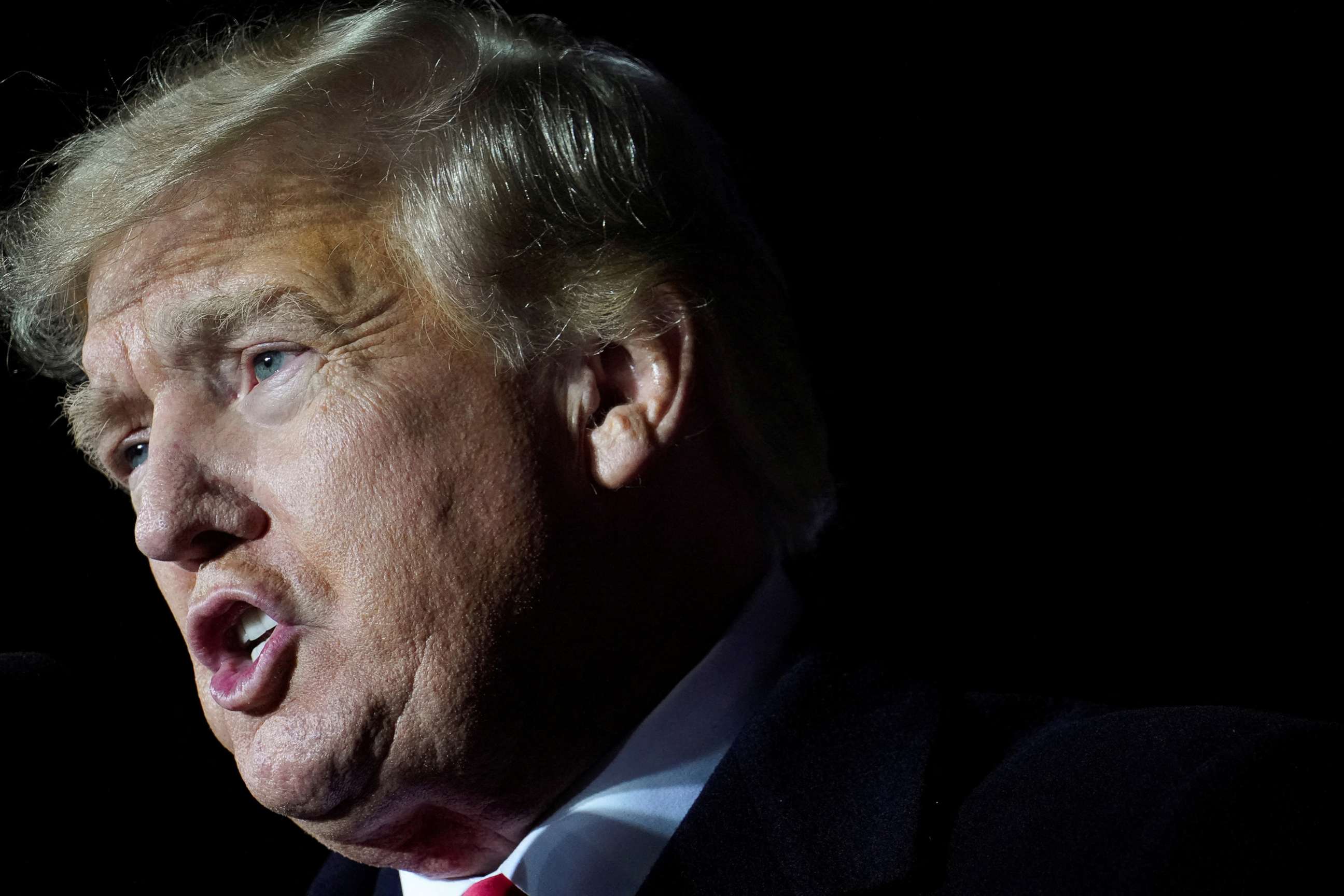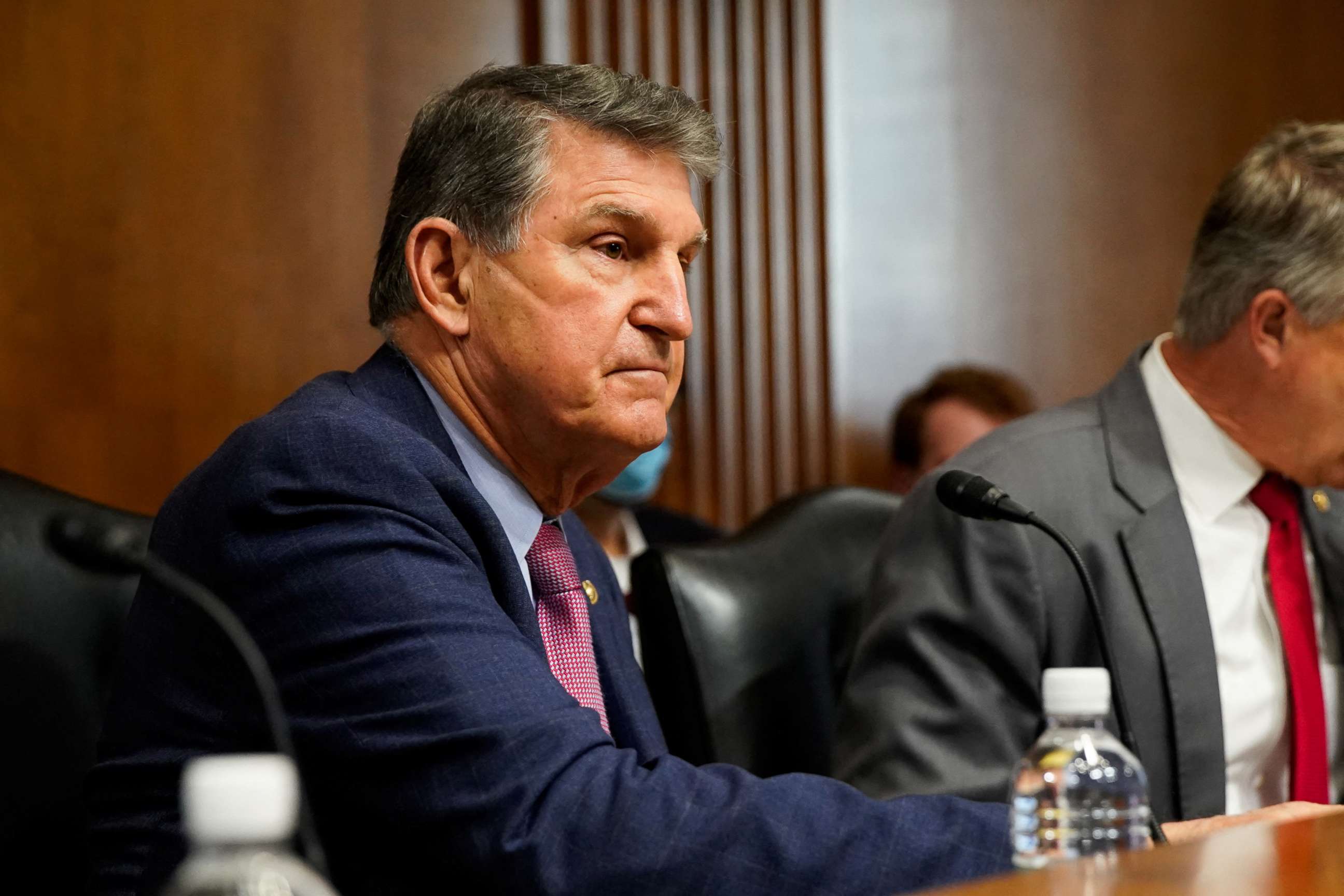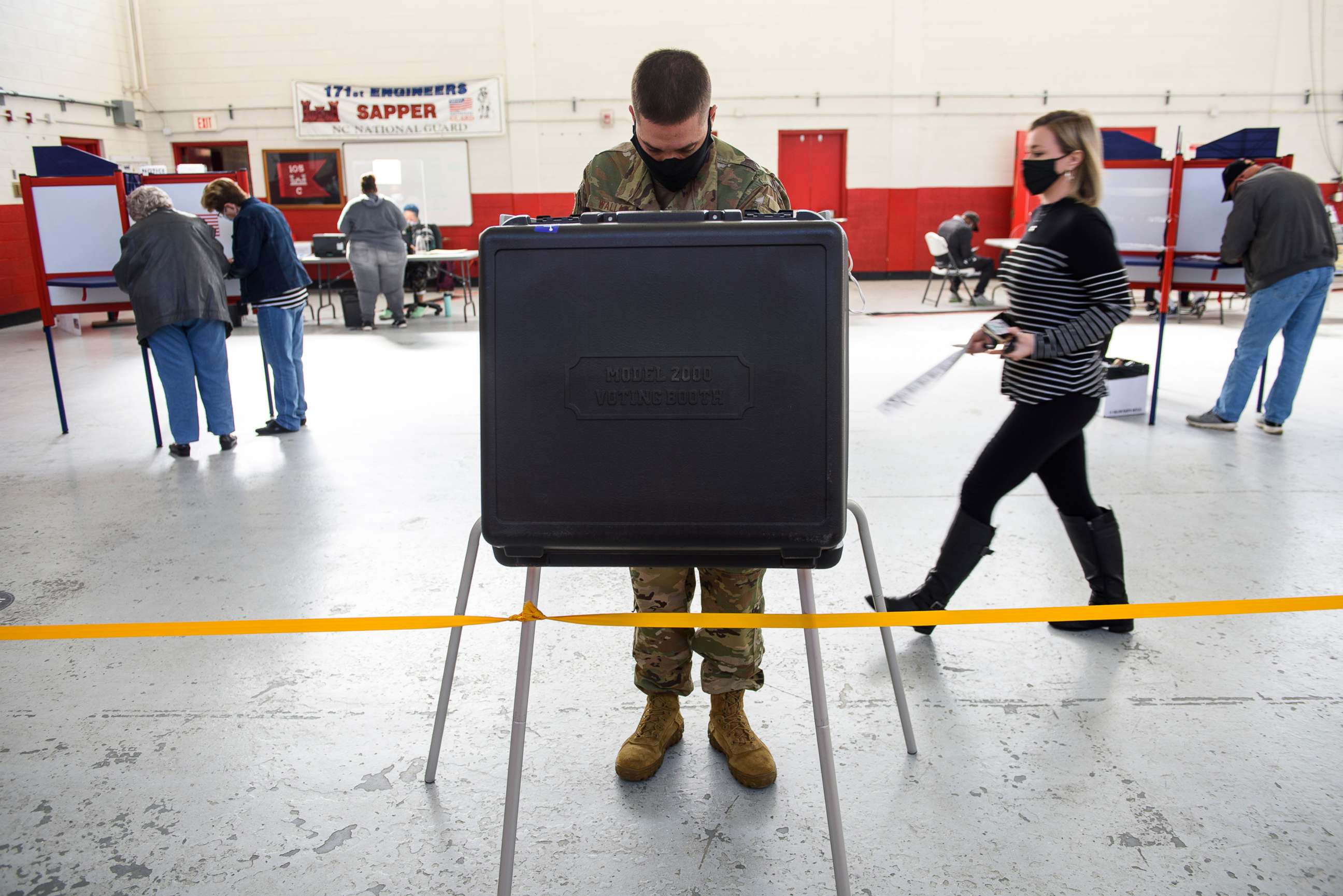Trump’s ‘big lie’ now a big dare to lawmakers: The Note
The TAKE with Rick Klein
Not changing the law means former President Donald Trump could try to do what he failed to get done all over again.
Changing it could be seen as an acknowledgment that he could have done what he wanted if only the right other people had gone along. And the next election might bring more of those people into the kinds of positions where they could make a difference in time for 2024.
That's the logical pretzel Trump has concocted with what he's now saying about the Electoral Count Act and his insistence that former Vice President Mike Pence -- in his words -- "could have overturned the Election!"
His suggestion that the Jan. 6 committee investigate why Pence didn't do so won't be taken seriously. But the substance of what Trump is saying about the much-debated 1887 law -- that debating it proves his ask of Pence was appropriate -- is harder to ignore.

There is broad bipartisan consensus that the Electoral Count Act is overly vague and even potentially dangerous. That consensus extends to the notion that it's probably overdue for a rewrite that would, among other things, clarify that a vice president's role in counting votes is purely ceremonial.
While talks among key senators in both parties continue, and a group of Democrats put forward a draft bill on Tuesday, some in their party have resisted reform efforts because they sense a trap set by Republicans seeking to dodge more meaningful voting rights debates. Many in the GOP, meanwhile, are hesitant to do anything seen as taking aim at Trump.
Revelations just in the last few days -- ripped-up White House records, extensive efforts to take federal control of voting machines, Trump's suggestion that he might pardon Jan. 6 participants -- underscore the urgency of what the Jan. 6 committee is investigating.
Likewise, the former president's own most recent words serve as a reminder that even relatively narrow voting reforms could make a big difference.
The RUNDOWN with Averi Harper
After suffering a stroke, Sen. Ben Ray Lujan, D-N.M., is expected to make a full recovery. But the senator's temporary absence will further illuminate the razor-thin margin in this 50-50 Senate.
Democrats aren't close to a deal on a scaled-back Build Back Better plan, and Sen. Joe Manchin, D-W.Va., told a group of reporters Tuesday that the president's social spending plan is "dead." But even if he were on board, it now wouldn't get passed without Lujan.
"What Build Back Better bill?" Manchin said Tuesday about the president's signature policy plan. When asked if he had participated in any talks on the topic, he said, "No, no, no, no. It's dead."

Manchin's declaration comes after he tanked Biden's social spending plan in December by saying he couldn't support the legislation. Biden has remained optimistic that movement on his signature policy plan was possible.
"Senator Manchin and I are going to get something done," Biden told ABC News in December.
But that something -- a smaller plan -- hasn't yet materialized, and Manchin indicated Tuesday that he wants to see other issues, like inflation, tackled first.
The TIP with Alisa Wiersema
Despite primary elections being just around the corner, some states are still ironing out their redistricting plans, and the push to cross the finish line is heightening the impact of state courts. This week alone, at least three states have redistricting developments hanging in the balance.
In North Carolina, the state Supreme Court is expected to hear oral arguments Wednesday about the newly revised congressional and state legislative districts. The core of the litigation involves challenges to the Republican-backed maps passed by the legislature which critics say lessen the voting impact of Black North Carolinians.

Last week, a federal district court in Alabama blocked the state's new congressional map, saying it violated the Voting Rights Act by proposing racially gerrymandered districts. Alabama is appealing the ruling to the Supreme Court, and the attorney general has asked for a stay while that process plays out. Wednesday will mark the deadline for plaintiffs to respond to that request, as directed by the Supreme Court. As reported by FiveThirtyEight, if the ruling is sustained, a "political earthquake" would ensue.
Meanwhile, Ohio's Supreme Court could rule on whether to uphold newly drawn maps after striking down the enactment of a GOP-backed map passed last month. The court ruled that map overwhelmingly skewed in favor of Republicans and violated the state's constitution. Since then, Republicans have asked the court to decide by Feb. 11 or issue a stay on current state legislative maps until after the 2022 elections out of fear that delays will interfere with this year's election calendar.
NUMBER OF THE DAY, powered by FiveThirtyEight
Fewer than 10%. That's the share of Democratic senators who backed Trump's three Supreme Court picks. Notably, too, the share of Democratic senators who backed Trump's nominees dropped with each subsequent nomination, with not a single Democratic senator backing Amy Coney Barrett. Read more from Geoffrey Skelley about how contentious the Supreme Court nomination process has become.
THE PLAYLIST
ABC News' "Start Here" Podcast. Start Here begins Wednesday morning with ABC's Karen Travers on Pfizer asking the FDA to grant emergency use authorization to vaccinate young children. Then, ESPN's Marcel Louis-Jacques reports on a lawsuit filed by a former NFL head coach accusing the league of discrimination. And, ABC's Victor Oquendo checks in from Winston-Salem, North Carolina, where a fire at a fertilizer plant has forced thousands to evacuate. http://apple.co/2HPocUL
WHAT YOU NEED TO KNOW TODAY
Download the ABC News app and select "The Note" as an item of interest to receive the day's sharpest political analysis.
The Note is a daily ABC News feature that highlights the day's top stories in politics. Please check back Thursday for the latest.




